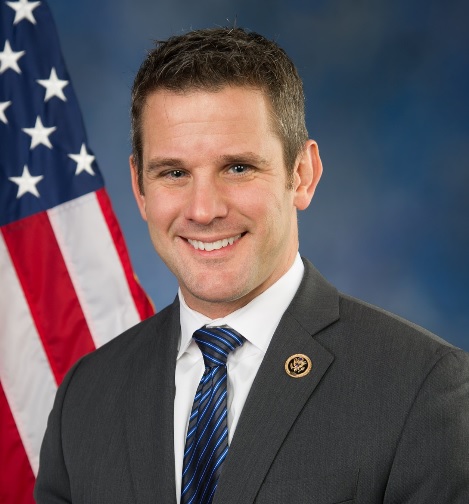Rep. Kinzinger Bill Would Bar Broadband Rate Regulation
Says rate regs would destroy successful investment model
The smarter way to stay on top of the multichannel video marketplace. Sign up below.
You are now subscribed
Your newsletter sign-up was successful

Rep. Adam Kinzinger (R-Ill.) has introduced a bill, the No Rate Regulation of Broadband Internet Access Act (H.R. 3346), that would prevent the FCC from regulating broadband access rates.
Kinzinger introduced the bill four Congresses ago, where it passed the House.
This time around, the bill comes as Republicans are preparing a counter offer bill to President Joe Biden's $1.7 trillion infrastructure package, which includes more than $100 billion for broadband deployment. The Biden plan funds municipal networks and makes price and competition part of the calculus for where broadband is considered to be available.
Also Read: GOP Unveils $20 Billion Broadband Bill
That means that if there is insufficient competition or the service is deemed too costly, it might not qualify as "available" broadband so that either the FCC could regulate rates or the government could allow broadband deployment money to be used for overbuilding existing service, something cable and other ISPs are strongly against.
"While the federal government can and should continue to provide resources to help with the build-out of broadband in those hard to reach areas, regulating service rates will only destroy this investment model—one that has brought access to over 90% of Americans and, frankly, helped prevent a devastating blow to our economy during the pandemic," said Kinzinger of the bill. "If we want to build upon this progress, we must ensure that the government is not setting the rates Americans pay to use the internet."
In promoting the infrastructure package, the White House has been painting a glass-half-empty portrait of broadband availability, including speed and competition and price in the definition of broadband issues that need $100 billion in subsidy money to address.
The smarter way to stay on top of the multichannel video marketplace. Sign up below.
For example, in talking points, the Administration said that in New York, almost a third of people who live where "there is only one broadband provider" offering at least "minimally acceptable speeds." And even where broadband is available, the White House said, it "may be too expensive to be within reach." Then it talks about 13% of New York households without an internet subscription, though it does not say whether that is because they can't get it or can't afford it or don't want it.
Contributing editor John Eggerton has been an editor and/or writer on media regulation, legislation and policy for over four decades, including covering the FCC, FTC, Congress, the major media trade associations, and the federal courts. In addition to Multichannel News and Broadcasting + Cable, his work has appeared in Radio World, TV Technology, TV Fax, This Week in Consumer Electronics, Variety and the Encyclopedia Britannica.

